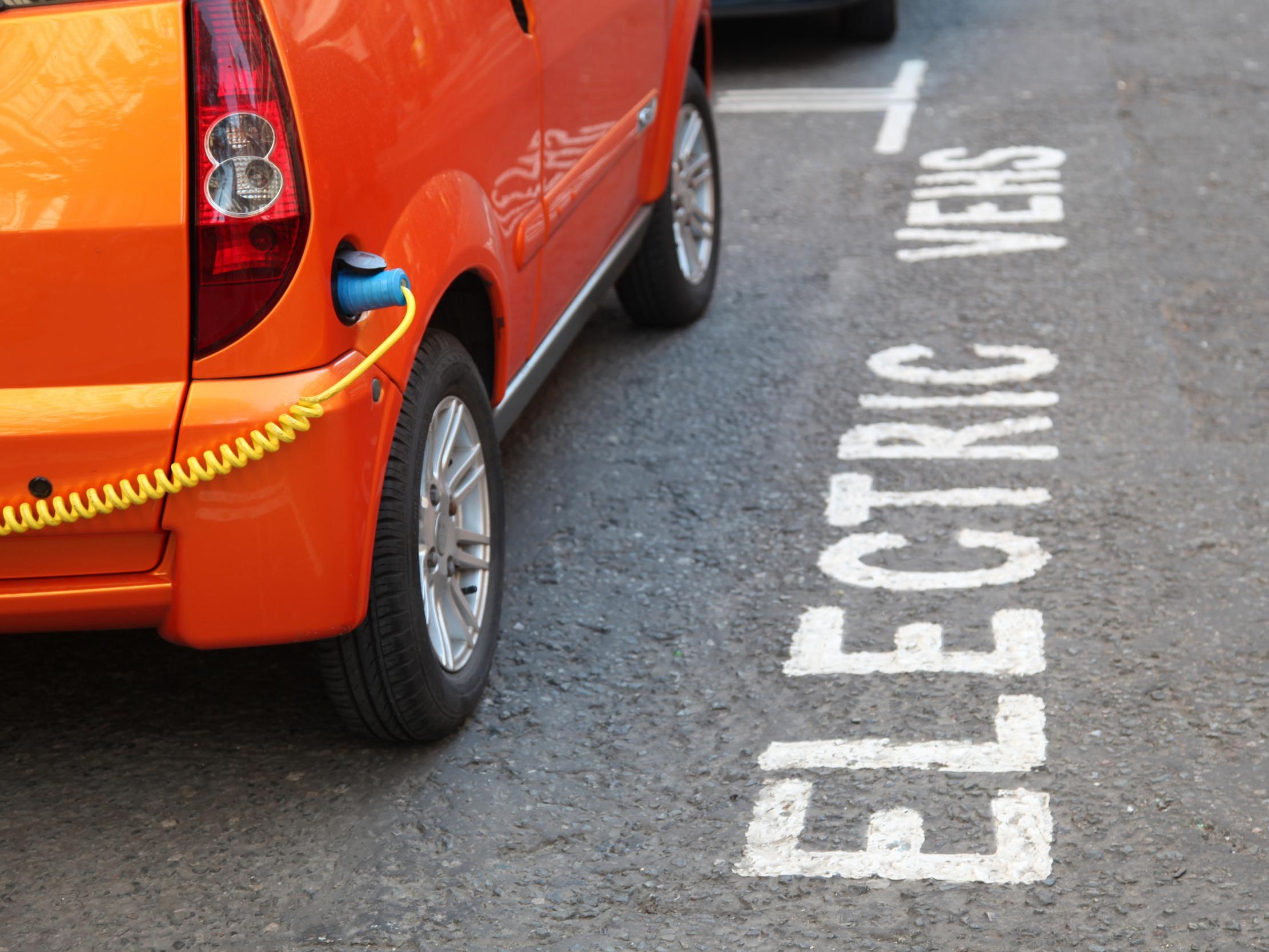Electric cars: What would a new £6,000 government scrappage scheme actually mean for drivers?
The government is reportedly considering a scheme, in which drivers could be given up to £6,000 to trade in their diesel or petrol vehicle for an electric one

The government is reportedly considering launching a car scrappage scheme, in which drivers could be given up to £6,000 to trade in their diesel or petrol vehicle for an electric one.
Boris Johnson will use a speech on 6 July to announce the measures, according to The Telegraph, following a 90 per cent decline in car sales in May, when compared to the same month last year.
An existing government Plug-In grant scheme was scaled back in March, reducing the payment amount by £500 to a maximum of £3k. The change came into effect on 11 March.
But now, just three months later, the government is looking to give the UK car industry a boost – particularly Britain’s three biggest car manufacturers, Jaguar Land Rover, BMW and Nissan, which all have electric cars at the heart of their sales strategies.
It also helps with the government’s commitment to banning sales of all new petrol, diesel or hybrid cars by 2035.
But what would the scrappage scheme actually mean for drivers if introduced?
What’s the deal?
Well-sourced reports suggest the government will soon introduce a car scrappage scheme. It would mean you could trade on your old petrol or diesel car, which might be worth very little, and get £6,000 off the cost of a new “green” motor.
This would cover pure electric cars, but also cover hybrid and plug-in hybrid vehicles that also have an internal combustion engine on board.
Who is eligible?
In 2009 a similar scheme was brought in after the banking crash to boost the car trade.
The criteria then were that; the grant only be used for brand-new unregistered vehicles bought in the next 12 months; the trade-in was at least 10 years old, the older car had MOT, tax and insurance, and; you should have owned it for at least 12 months.
This time round the new car will also need to be “green” and have some electrical propulsion, though that is not yet defined.
Why do I want an electric car?
To help save the planet, obviously, but apart from that there are radically lower running costs – fuel is pennies and there is very little to service. Modern electric cars can do 200 to 300 miles on a single charge, are smooth, silent and surprisingly accelerative.
There are also lots of models to choose from. There are city cars from Skoda and Smart; conventional hatchbacks from, for example, Nissan, Tenault, Vauxhall, Peugeot, Citroen, Renault and VW; compact SUVs from Volvo, MG, Kia and Hyundai; larger SUVs from Jaguar, Porsche and the famous Tesla models.
But you really do have to work out if the lower running costs offset the high purchase price – they tend to be expensive.
Are there any other incentives?
Yes. At the moment there’s already a £3,000 grant for pure electric-only cars (but not hybrids). This applies to cars costing less than £50,000.
On top of that you could receive £350 towards installing a charging point, such as a home wall box. In Scotland there is a further grant of up to £350 available – so £700 in total.
But there is a limit for the home box subsidy of two charge points per household.
Another grant is also available for plug-in hybrids and cars costing over £50,000. These grants, from the Electric Vehicle Homecharge Scheme, can cover all of most of a new home charging box, depending on how fast the charger is. There is an upper limit to what any domestic mains can deliver though, unlike public ultra-fast charging facilities.
Businesses can benefit from similar schemes and all electric car users benefit from lower annual car tax and “benefit in kind” income tax levies.
What’s the snag?
Well you could get £3,000 off an electric car already and of course the new car dealer might already be willing to give you an additional discount anyhow, so the £6,000 isn’t as generous as it sounds if the price of the car is just inflated.
But your old car might be worth more than you think, so selling it and buying the new car without scrappage and on the existing £3,000 subsidy might pay off – as ever do your research, shop around.
The biggest single factor in your decision is having access to off street parking or a charge point at work to charge your car, normally overnight. Relying on the small public charging network is rather more difficult and more expensive. Flat dwellers would need to club together to see if they could share a set of points, for example.
Is this scheme good for the economy?
Arguably it is expensive for the taxpayer – the 2009 scheme cost £300 million. Almost all electric cars – except the Nissan Leaf – are built abroad, so not many jobs would necessarily be saved.
But it will (mostly) help the UK reach its CO2 targets. Although hybrids and plug-in hybrids aren’t that green. The more pure electric cars replace petrol and diesel cars and vans doing high mileages the greener it will be. Overall it will have a small direct effect but can make electric cars more mainstream.
When might this start?
Briefings suggest that Boris Johnson would like to announce it in a speech on 6 July. No start date has been announced at this stage. But the current government £3,000 scheme has been extended to 2022-2023.
Join our commenting forum
Join thought-provoking conversations, follow other Independent readers and see their replies
Comments
Bookmark popover
Removed from bookmarks